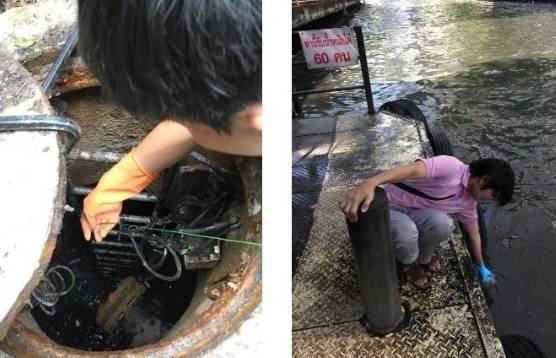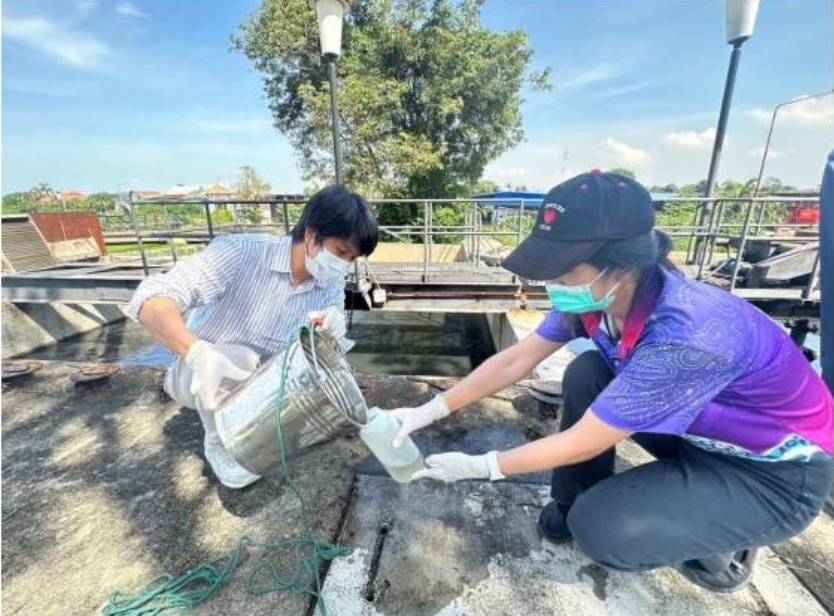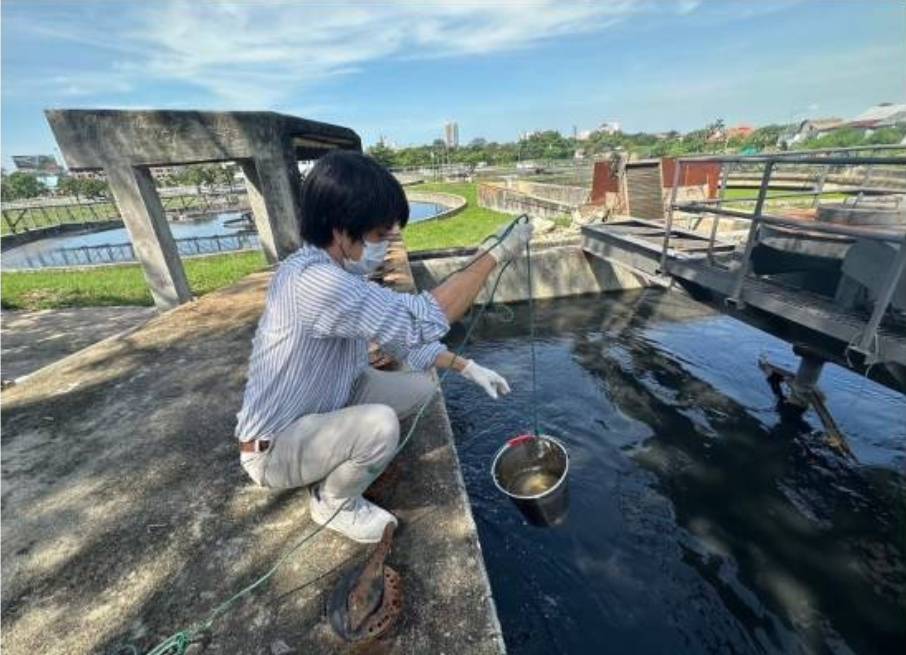Newswise — Dr. Jatuwat Sangsanont from the Department of Environmental Science at the Faculty of Science, Chulalongkorn University, has been award the United Nations Public Service Awards (UNPSA 2024) in the ‘Innovation in Public Institutions’ category. His innovation, “Academic Insight into Action for Pandemic Response” was recognized at the United Nations Public Service Forum and Awards Ceremony in South Korea.
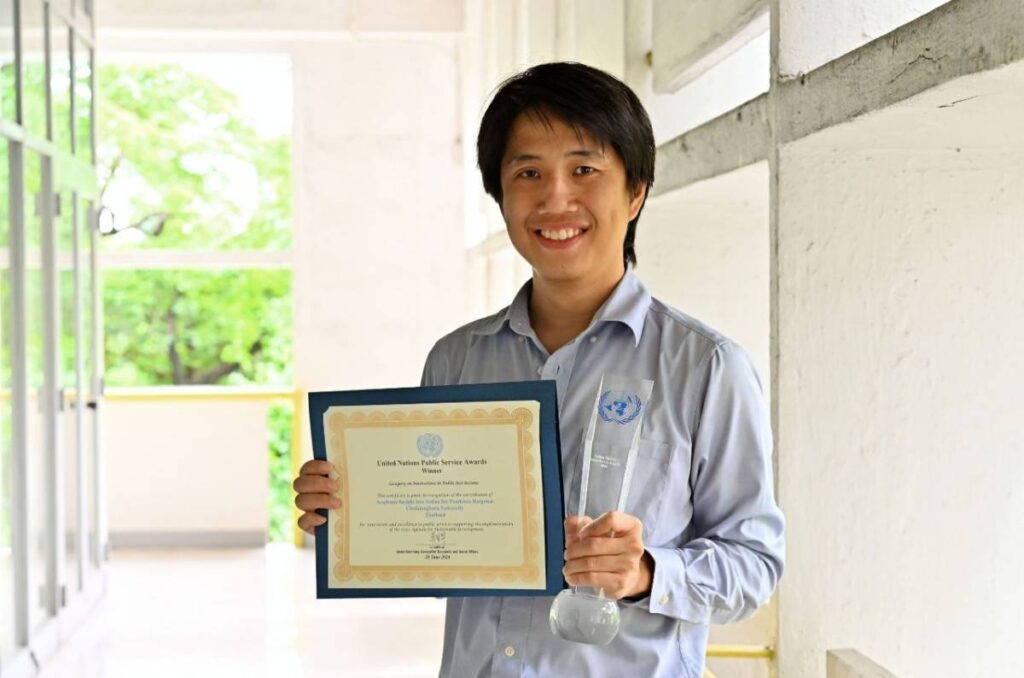
Department of Environmental Science
Faculty of Science, Chulalongkorn University
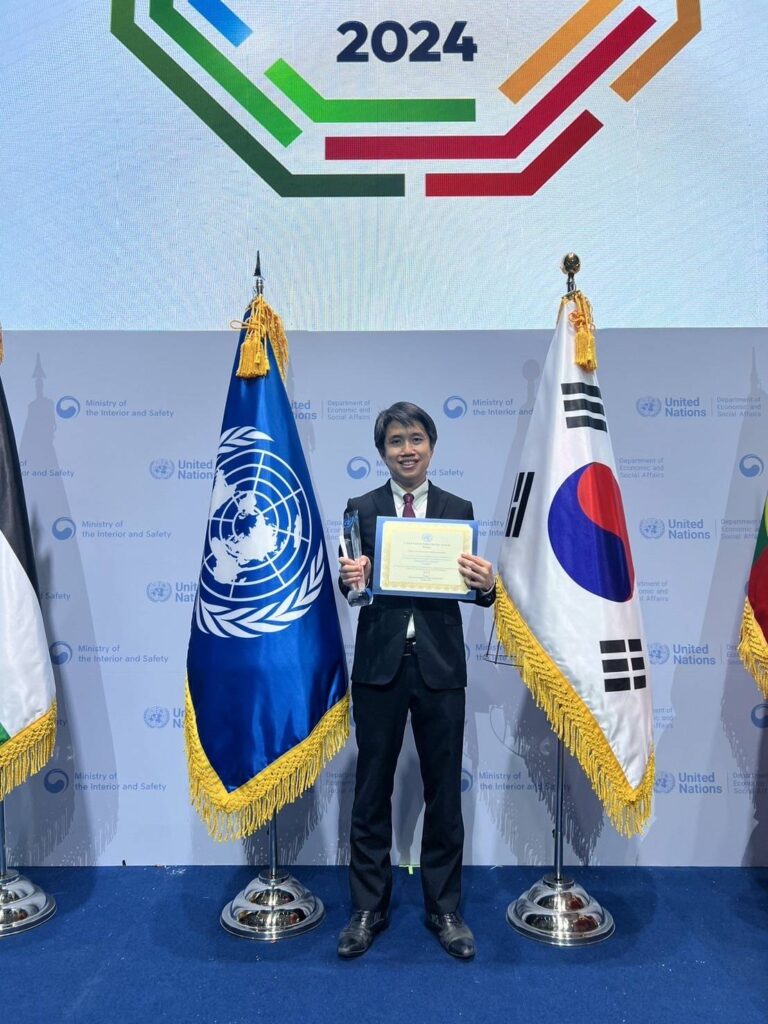
A pandemic is a contagious disease that rapidly spreads across wide areas, significantly increasing the number of patients in a short period. Addressing this critical issue requires swift action to control outbreaks as quickly as possible. The COVID-19 pandemic, which affected the entire world, including Thailand, inspired Dr. Jatuwat to develop innovations that use academic knowledge to respond more quickly and efficiently to disease outbreaks in Thailand. His approach involves using wastewater measurements to provide advance warnings before an actual outbreak occurs, aiding in better decision-making.
Significance of Wastewater Epidemiology
Wastewater epidemiology is a crucial tool for tracking disease outbreaks, allowing for more effective prevention efforts. It can provide early warnings before outbreaks occur and reduce the costs associated with disease monitoring. Additionally, it can be used to detect drugs in wastewater, helping to prevent drug spread.
Dr. Jatuwat explained that wastewater measurement is a method that accurately reflects the number of sick individuals in a community, leading to faster and more efficient epidemic prevention. This application of academic knowledge benefits the public, and the UNPSA Award for Innovation in Public Administration for 2024 is a testament to the success and importance of this research in the field of Thai public health. Furthermore, this innovation aligns with Sustainable Development Goals (SDGs) 3 (Good Health and Well-being) and 6 (Clean Water and Sanitation), contributing to better quality of life for all.
Innovation Through Collaboration to Combat Epidemics
Dr. Jatuwat highlighted that traditional methods of investigating disease outbreaks involve waiting for patients to seek treatment at medical facilities before collecting data and evaluating trends. However, these methods have limitations, particularly when patients do not seek hospital care or when data collection is insufficient. The innovation “Academic Insight into Action for Pandemic Response” uses wastewater measurement methods to establish the relationship between the presence of pathogens and the resulting cases. This allows for a more accurate assessment of the spread of germs and enables faster decision-making to prevent outbreaks.
This innovation is the result of collaboration between the Department of Environmental Science, Faculty of Science, Chulalongkorn University, the Center of Expertise in Clinical Virology, Faculty of Medicine, Chulalongkorn University, Chulabhorn Research Institute, King Mongkut’s University of Technology Thonburi, Walailak University, and various government agencies.
The research began with a proof of concept using wastewater measurements to track disease outbreaks. By collecting wastewater samples from the Department of Drainage in Bangkok, the team found that they could warn of COVID-19 outbreaks up to two weeks in advance. This success has led to the expansion of the research to other areas in Bangkok and the use of the methodology to detect other infections. Early warnings based on this information allow for quicker and more efficient epidemic prevention.
Practical Innovations to Prevent Future Epidemics
Dr. Jatuwat revealed that, in addition to preventing COVID-19, this innovation can be applied to many other diseases such as smallpox, gastrointestinal diseases, and influenza. It helps reduce the costs associated with tracking epidemics and provides valuable data for decision-making and resource allocation in public health. The innovation is currently being further developed for use in other epidemics, with ongoing collaboration with government agencies and international universities. This includes using wastewater data to monitor changes in virus strains and disease outbreaks, which will aid in vaccine development and future epidemic prevention.
The UNPSA Awards, established by the UN Economic and Social Council, are international awards recognizing excellence in public service. They focus on initiatives that are creative and beneficial to public service, leading to more efficient public administration and better responses to citizens worldwide. This award highlights the excellence of Thai research and innovation on the global stage.
For more information about the UNPSA awards, visit: https://www.youtube.com/watch?v=3cGuzxlGdY8
Follow more information about the work of Faculty of Science, Chulalongkorn University, who won first place, visit: https://publicadministration.un.org/unpsa/database/Winners/2024-winners/Academic-Insight-into-Action-for-Pandemic-Response


